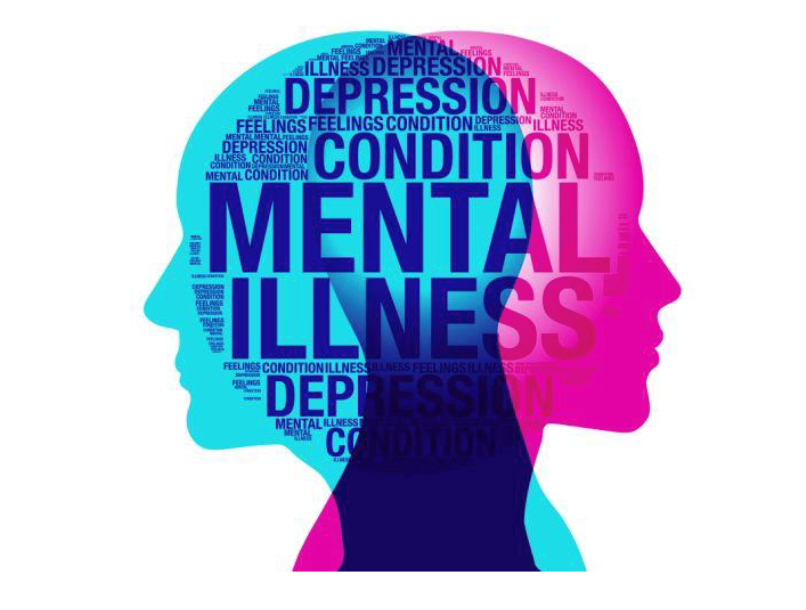Recognizing the Impact of Workout on Mental Health and General Health
In the realm of psychological health and general health, the relevance of workout is a complex topic that requires exploration. Beyond its physical benefits, the impact of workout on one's psychological health and wellness has actually been a subject of expanding interest and research study. The elaborate interplay between physical activity and psychological health introduces a spectrum of positive end results that expand far past the boundaries of a health club or a running track. As we browse with the complexities of this connection, a deeper understanding of just how exercise affects our psychological state and general wellness arises, clarifying the extensive effects it holds for our day-to-days live and lasting wellness.
Benefits of Exercise on Mental Health

Routine workout has been shown to substantially boost psychological health results in people of any ages. Participating in routine exercise not just advantages physical health yet likewise plays an essential duty in boosting mental health. Among the primary advantages of workout is its capability to decrease signs of anxiety and depression. Physical task promotes the release of endorphins, likewise recognized as the "feel-good" hormones, which can assist reduce feelings of stress and boost mood.
Additionally, exercise has actually been linked to improved cognitive function and general mind wellness. Additionally, exercise advertises better sleep patterns, which are important for maintaining good mental health and wellness.

Link Between Exercise and Stress And Anxiety
Workout offers as a powerful device for relieving stress and advertising psychological wellness by helping with the launch of endorphins and cultivating a feeling of relaxation and rejuvenation. Exercise promotes the production of endorphins, frequently referred to as the body's all-natural pain relievers, which act as state of mind elevators and tension relievers.
Participating in physical activity additionally offers a distraction from daily stress factors, allowing people to concentrate on the existing moment instead of pondering on resources of tension. Furthermore, workout can enhance self-esteem and self-confidence, giving a feeling of accomplishment and control that can battle feelings of helplessness typically linked with tension. By including exercise into a regular routine, individuals can properly handle anxiety levels, resulting in improved psychological well-being and overall lifestyle.
Influence of Workout on Mood
The connection in between workout and mood is well-documented, with many studies highlighting the favorable effects of physical activity on psychological health. In addition, regular exercise can lead to improved self-esteem and a feeling of accomplishment, which can further improve one's general mood.
Furthermore, the impact of exercise on mood prolongs past just the immediate post-workout duration. Research recommends that people that preserve a constant workout routine are much more most likely to experience long-lasting enhancements in their state of mind and psychological state. This can be credited to the architectural changes in the mind that happen as an outcome of regular physical task, such as increased connection between mind regions in charge of regulating emotions.
Workout and Cognitive Feature
Many research studies have actually demonstrated the substantial influence of physical task on cognitive feature, highlighting the intricate connection between workout and psychological processes. Involving in normal exercise has actually been shown to enhance different aspects of cognitive feature, including memory, focus period, problem-solving abilities, and overall psychological skill.
In addition, regular physical activity has actually been connected to a minimized threat of cognitive decrease and neurodegenerative diseases such as Alzheimer's. Researches suggest that people who maintain an active way of living throughout their lives experience slower rates this article of cognitive decrease compared to those who are sedentary. On the whole, the evidence extremely sustains the concept that regular workout is not only beneficial for physical health but also plays an essential duty in maintaining and boosting cognitive function.
Strategies for Integrating Exercise
Embracing a structured technique to integrating physical activity into everyday regimens can substantially improve the possibility of preserving a regular workout program. One reliable approach is to set certain, possible goals. These objectives should be reasonable and tailored to private capacities to avoid sensations of failure and make certain motivation. Additionally, including exercise into existing regimens, such as strolling or biking to function, taking the stairs rather than the lift, or organizing normal exercise sessions, can assist make exercise a habitual part of day-to-day life.
One more helpful method is to discover tasks that are pleasurable. Whether it's dance, biking, swimming, or yoga exercise, participating in tasks that bring satisfaction boosts the possibilities of sticking to the exercise regimen in the future. In addition, varying the types of exercises and setting apart time for both cardio and strength-training activities can protect against monotony and give an all natural method to physical conditioning.
Incorporating workout into social tasks, such as joining a sporting activities group or exercise group, can straight from the source additionally cultivate a sense of area support and liability, making it much easier to stay devoted to normal exercise. By carrying out these techniques, people can create a sustainable and meeting workout regimen that advertises mental health and wellness and overall wellness.
Final Thought
Finally, exercise has various benefits for psychological health and wellness and overall wellness. It can help in reducing stress levels, boost mood, and improve cognitive feature. Incorporating routine physical task into one's routine is important for promoting mental wellness. By recognizing the influence of exercise on psychological health and wellness, individuals can take aggressive actions to prioritize their exercise and gain the favorable impacts on their psychological and emotional state.
